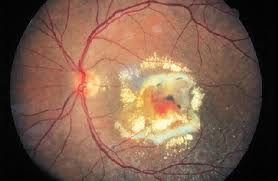It is a well-known fact that certain diseases go together, for instance diabetes and heart disease. Every effort has to be made for this reason to control a disease in order to minimize the risk for other associated illnesses.
New research from rheumatologist Dr. Sherin Gabriel at the Mayo Clinic points to another health condition. Patients affected by rheumatoid arthritis have a higher risk of early death than others, and these deaths are mostly due to cardiovascular disease. The relationship between these two diseases is complex, reports Dr. Gabriel, and the common denominator between heart disease and rheumatoid arthritis seems to be systemic inflammation.
Research from the Mayo Clinic in Rochester, Minnesota, has been published in March, and it was found that inflammation documented by laboratory tests such as an erythrocyte sedimentation rate of over 60mm per hour increased the risk for heart disease by a factor of two. Rheumatoid arthritis vasculitis increased the risk to 2.4, and RA lung disease showed a risk increase of 2.3. Traditional risk factors for heart disease like smoking, alcohol, obesity and diabetes were accounted for, yet the more dramatic risk factor in the population with RA (rheumatoid arthritis) was the aspect of inflammation. The results of this research are based on data from the Rochester Epidemiology Project, in which 603 persons with rheumatoid arthritis were followed over 15 years. In this time span 364 of these patients died, and heart disease was the primary cause of death in 176 of them. The subjects of this group were three times as likely as an age-matched population to have been hospitalized for a heart attack and had five times the risk of having an unrecognized heart attack. This group is also more vulnerable, because patients with rheumatoid arthritis suffer of joint pains, receive painkillers, and often chest pain can be masked by pain medication and go unrecognized.
Co-author Dr. Hilal Maradit points out that rheumatoid arthritis remains a multifactor problem, and one factor alone does not explain the entire story, but in the meantime the link of inflammation in RA to cardiovascular disease is an important step closer to early recognition and successful control.
More info about:
Rheumatoid arthritis: http://nethealthbook.com/arthritis/rheumatoid-arthritis/
Gingivitis: http://nethealthbook.com/dentistry/gingivitis/
Heart attacks: http://nethealthbook.com/cardiovascular-disease/heart-disease/heart-attack-myocardial-infarction-or-mi/
Reference: National Review Of Medicine, April 15, 2005, page 3
Last edited October 28, 2014








